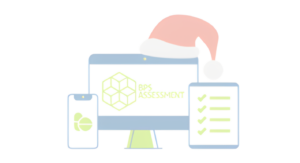Failing the Prescribing Safety Assessment (PSA) can feel discouraging, but it’s important to remember it’s not the end of the world. A proportion of students and foundation doctors don’t pass on their first attempt, but with the right preparation and mindset, you can turn this setback into success. The good news? You’ll have another opportunity to take the exam later in the year, giving you time to improve and pass with confidence.
In this guide, we’ll break down what went wrong, how to improve, and what steps to take to ensure you pass the PSA next time.
1. Reflect on Your Performance: What Went Wrong?
Before diving into revision, take time to analyse your performance. Ask yourself:
- Which question types were most challenging? (e.g. prescribing, dose calculations, adverse drug reactions)
- Did I run out of time?
- Was I confident using the BNF?
- Did I misread questions or make avoidable errors?
Tip: Go through the feedback provided on the PSA platform. Understanding why you struggled is the first step in improving.
2. Make a Structured Study Plan
Rushing into revision without a strategy can lead to repeating the same mistakes. create a realistic, structured study plan that allows enough time to revise each topic properly.
- Set goals – Focus on weaker areas while maintaining strengths.
- Prioritise question practise – Use practice papers to develop confidence.
- Simulate exam conditions – Time yourself to build speed and accuracy.
Tip: Give yourself plenty of time before the next sitting – last-minute cramming is rarely effective!
3. Master Time Management
One of the biggest challenges of the PSA is completing all the questions in two hours. If time was an issue in your first attempt, work on:
- Practising under timed conditions – Answer practice questions with a strict time limit.
- Using the ‘flag and return’ method – If a question is taking too long, move on and come back later.
- Managing calculations efficiently – Practice quick mental maths and using a calculator effectively.
Tip: Not all questions in the PSA are scored equally; spending longer on the higher-scoring questions could benefit you in the long run. Read our blog about mastering the time pressures to get a sense of how long to spend on each section.
4. Get Confident with the BNF
Knowing how to navigate the BNF (British National Formulary) quickly is key to passing the PSA. Many students fail because they waste time searching for drug information or misunderstand key details.
- Practise searching for drugs efficiently – Utilise both the Medicines Complete and NICE BNF. Learn where to find indications, contraindications, dosages, and interactions.
- Familiarise yourself with prescribing for special populations – Elderly patients, renal impairment, and pregnancy.
- Use it in your practice questions – So you’re comfortable looking things up quickly during the exam.
Tip: Speed matters! The faster you find information in the BNF, the more time you have to answer questions.
5. Learn from High-Quality Resources
Make sure you’re using the right materials to prepare.
- Official PSA resources – Review the official exam guidance and sample questions.
- BPS Assessment Learner’s Portal – Free eLearning sessions, revision tips, and more
- BPS Assessment’s Learner Portal Blog Section (Portal Post) – Expert advice on passing the PSA, including strategies for success.
Access free revision resources here: https://portal.bpsassessment.com/
Tip: Using structured resources will help you focus on exam-style questions rather than just reading textbooks.
6. Don’t Let Failure Knock Your Confidence
Failing an exam is tough, but it does not define your ability as a doctor. Plenty of skilled, competent healthcare professionals have had setbacks in their careers – what matters is how you learn and improve.
- Stay positive – One exam won’t shape your entire career.
- Seek support – Talk to professors, mentors, or peers about how to improve.
- Look after yourself – Eat well, sleep properly, and take breaks to avoid burnout.
Tip: Surround yourself with supportive people and remind yourself why you’re doing this – to become a safe and effective prescriber.
Your Next Steps
If you didn’t pass the PSA this time, don’t panic – you’ll have another chance later in the year. By identifying your weak points, improving your exam technique, and using the right resources, you’ll be in a much stronger position for your next attempt.
- Learn from your mistakes
- Revise with a structured plan
- Practise under exam conditions
- Stay positive and persistent
You’ve got this! Good luck with your next PSA attempt!





